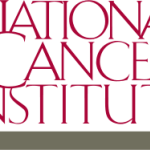- Branche: Government; Health care
- Number of terms: 6957
- Number of blossaries: 0
- Company Profile:
The National Cancer Institute (NCI) is part of the National Institutes of Health (NIH), which is one of 11 agencies that compose the Department of Health and Human Services (HHS). The NCI, established under the National Cancer Institute Act of 1937, is the Federal Government's principal agency for ...
A hydrazine compound that has been investigated for antineoplastic activity.
Industry:Pharmaceutical
A hybrid polar-planar compound with potential antineoplastic activity that induces terminal differentiation, inhibits cell growth, and causes apoptosis in several tumor cell lines. Its precise mechanism of action is unknown.
Industry:Pharmaceutical
A humanized, Fc disabled anti-human glucocorticoid-induced tumor necrosis factor receptor (GITR) monoclonal antibody (MoAb) with immunomodulating activity. Anti-human GITR MoAb TRX518 blocks the interaction of GITR, found on multiple types of T cells, with its ligand, thereby inducing both the activation of tumor-antigen-specific T effector cells, as well as abrogating the suppression induced by inappropriately activated T regulatory cells. This agent is shown to act synergistically with chemotherapeutic drugs in multiple cancer models.
Industry:Pharmaceutical
A humanized, immunoglobulin G1 monoclonal antibody with potential antitumor activity. Farletuzumab specifically targets at glycoprotein 3 (GP-3), a cell surface antigen that is overexpressed on many epithelial-derived cancer cells. Upon binding to the GP-3 antigen, farletuzumab triggers a host immune response against GP-3 expressing cells resulting in cell lysis.
Industry:Pharmaceutical
A human-mouse chimeric antibody, constructed from a murine antiinterleukin 6 (IL-6) monoclonal antibody, with antitumor and antiinflammatory activities. Containing the antigen-binding variable region of the murine antibody, CLB-IL-6-8, and the constant region of a human IgG1kappa immunoglobulin, siltuximab has high affinity for recombinant as well as native IL-6 and inhibits the binding of IL-6 to the IL-6 receptor (IL-6R), resulting in the blockade of the IL-6/IL-6R/gp130 signal transduction pathway, and, subsequently, antitumor and antiinflammatory activities.
Industry:Pharmaceutical
A humanized monovalent monoclonal antibody directed against the hepatocyte growth factor receptor (c-Met) with potential antineoplastic activity. Onartuzumab binds to the extracellular domain of c-Met, preventing the binding of its ligand, hepatocyte growth factor (HGF); the activation of the c-Met signaling pathway is thus inhibited, which may result in cell death in c-Met-expressing tumor cells. C-Met, a receptor tyrosine kinase, is overexpressed on the cell surfaces of a variety of cancer cell types and may play a key role in their proliferation, invasion and survival.
Industry:Pharmaceutical
A humanized recombinant monoclonal antibody directed against CD33, a cell surface antigen found on myeloid leukemia blasts and early hematopoietic progenitor cells. Lintuzumab stimulates antibody-dependent cell-mediated cytotoxicity (ADCC) against tumor cells expressing CD33, resulting in a decrease in tumor burden. The humanized version of this monoclonal antibody exhibits less immunogenicity and improved binding affinity compared to its murine counterpart.
Industry:Pharmaceutical
A humanized, affinity-matured IgG1k antibody directed against denatured collagens (I-IV) with potential antiangiogenic and antineoplastic activities. Anti-denatured collagen recombinant monoclonal antibody TRC093 binds to multiple epitopes on denatured collagens, inhibiting proteolytic collagen-mediated signaling in the extracellular matrix (ECM) that is important to tumor angiogenesis, tumor growth, and metastasis. The epitopes on denatured collagen bound by this antibody are considered "cryptic" because, in vivo, they are accessible only on the subendothelial basement membrane of tumors or in normal tissues undergoing neovascularization.
Industry:Pharmaceutical
A humanized monoclonal antibody with antineoplastic activity. Matuzumab binds the epidermal growth factor receptor (EGFR) with high affinity, competitively blocking natural ligand binding and blocking receptor-mediated downstream signalling, resulting in impaired tumor cell proliferation.
Industry:Pharmaceutical
A humanized monoclonal antibody directed against Wnt antagonist Dickkopf-1 (DKK1) with potential anti-osteolytic activity. Anti-DKK1 monoclonal antibody BHQ880 binds to and inhibits DKK1, enhancing signaling through the Wnt pathway, which may result in osteoblast differentiation and activation within the bone matrix and the reversal of tumor-induced osteolytic disease. DKK! is a potent Wnt signaling pathway antagonist.
Industry:Pharmaceutical
